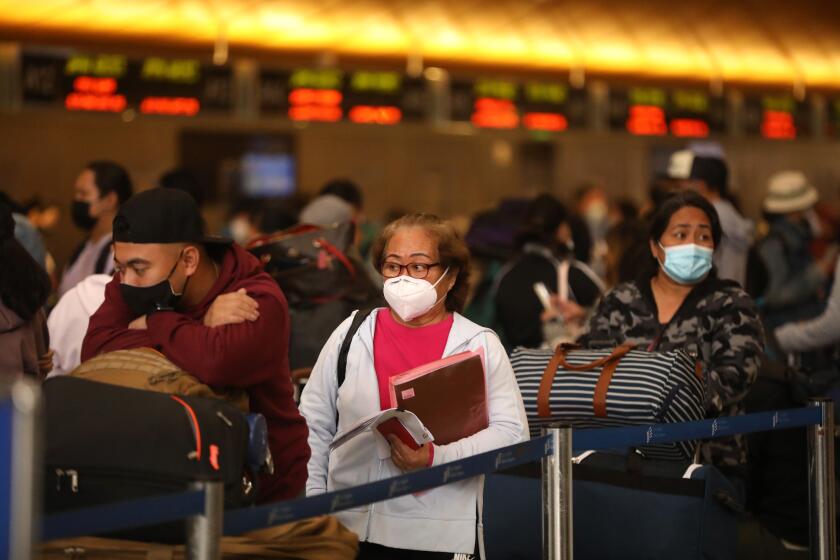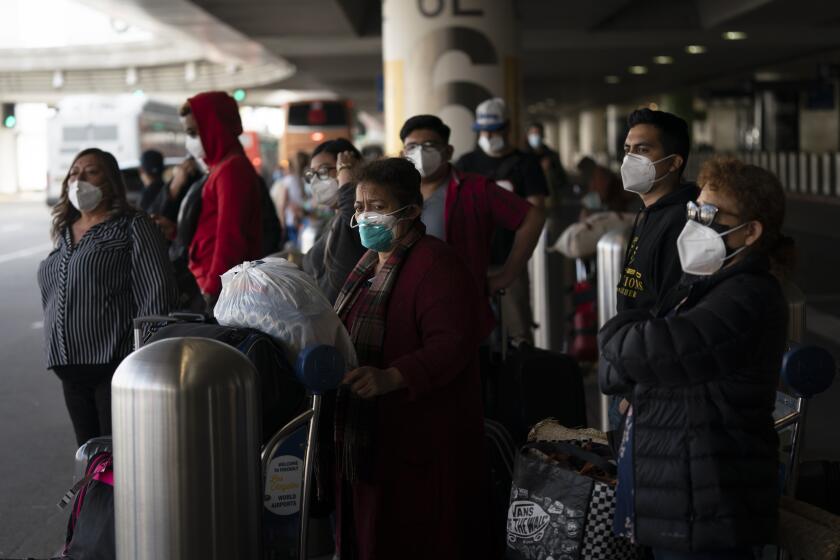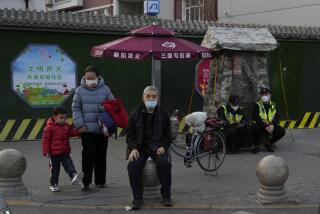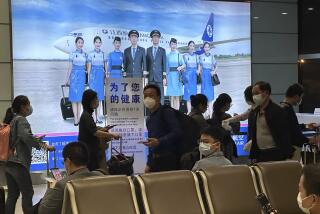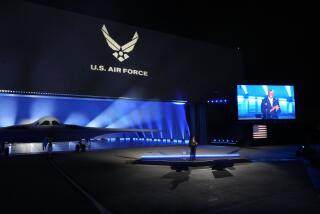The U.S. needs to wake up and mandate vaccines for domestic flights, not just international
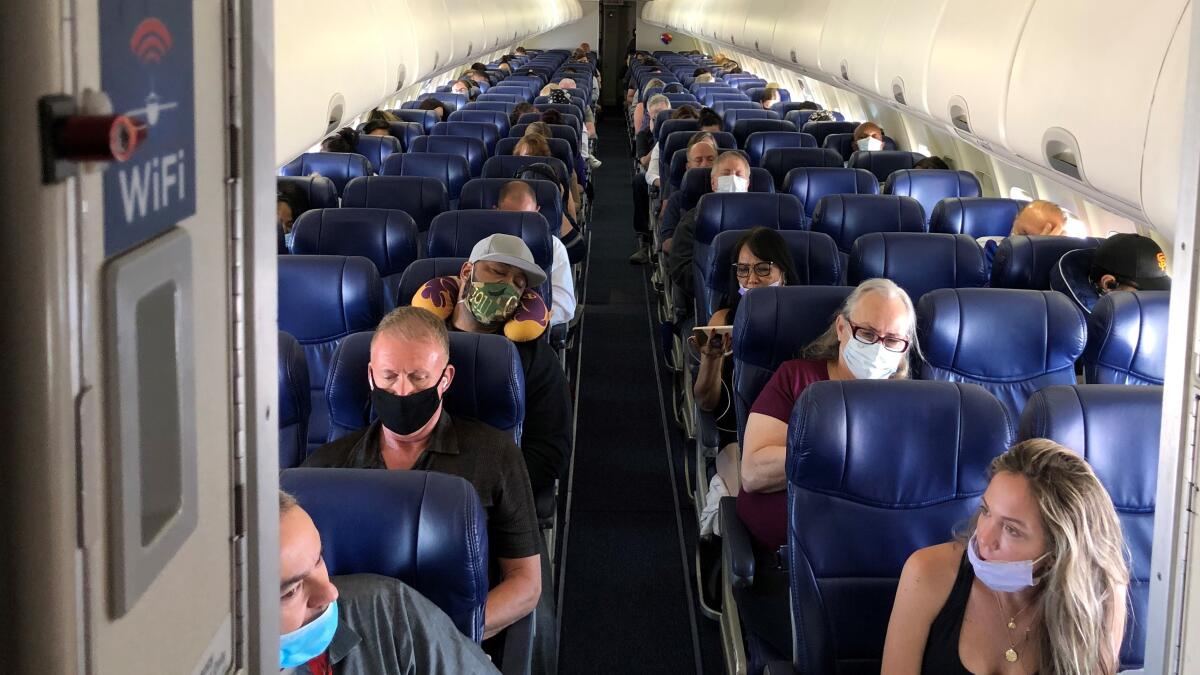
- Share via
Over the next week, millions of Americans are expected to board an airplane heading for someplace to spend the holidays — very possibly in the company of the newest and wiliest strain of the coronavirus, Omicron.
The invisible hitchhiker will find it difficult to board international flights, as travelers to far-flung destinations are subject to all manner of COVID-19 requirements. But for the thousands of domestic flights taking off between now and the end of 2021, the coronavirus will find easier access. There are no national COVID-19 vaccination and testing requirements for domestic air travel, just the much-violated mask mandate that’s supposed to keep infections to a minimum as dozens of people are crowded together in a metal tube for hours at a time.
That’s nuts, and there was some hope that President Biden might consider new rules on domestic air travel as part of his latest coronavirus action plan announced Tuesday. He did not, instead offering Americans free rapid tests upon request, which we really may need when they are finally available next year.
If you’re traveling by plane this holiday season, here are tips for reducing your COVID-19 risk as much as possible at the airport and on your flights.
It’s not too late for Biden to change course. He and state and local leaders are right not to impose new lockdowns on Americans, but there’s room for sensible protections at this critical point in the pandemic, such as the requirement to vaccinate or test to fly domestically, as suggested by a group of Democratic lawmakers, including California Sen. Dianne Feinstein, in a letter Monday to the heads of the Centers for Disease Control and Prevention and the Federal Aviation Administration. Not only is it sound public health policy, they note, it would assuage concerns that passengers have about flying.
It is also pretty darn reasonable. This would not force anyone to get a shot they didn’t want, but it would stop those with active infections from flying. Airlines are in the document-checking business already, and many carriers already have COVID-19 document verification systems in place for their international travelers.
Omicron has raced ahead of other variants and is the dominant version of the coronavirus in the U.S. Federal health officials say Omicron accounted for an estimated 73% of new infections.
Airlines say that their passenger cabins have excellent ventilation systems and studies support the assertion that they aren’t recirculating the virus. But no matter how excellent the air quality may be, passengers sitting close together may still be exposed to one another directly. Masks aren’t foolproof and must be removed for eating and drinking, which is still allowed on planes.
Besides, there’s still a lot we don’t know about Omicron, other than it replicates and spreads terrifyingly fast. Former CDC Director Thomas Frieden tweeted earlier this week that “I’ve worked on infectious disease outbreaks for 30 years. I’ve NEVER seen anything like the speed of Omicron. It’s as infectious as measles spreading in a non-immune population, with a much shorter incubation time therefore much faster doubling time. Hope it’s a lot less severe.”
So do we. And the early data suggest that the sickness from Omicron is generally milder than earlier variants. But even a milder form of COVID-19 can be deadly to those with underlying conditions and who are not vaccinated.
It’s not just time for COVID-19 vaccination and testing rules for domestic flights, it’s past time.
More to Read
A cure for the common opinion
Get thought-provoking perspectives with our weekly newsletter.
You may occasionally receive promotional content from the Los Angeles Times.
